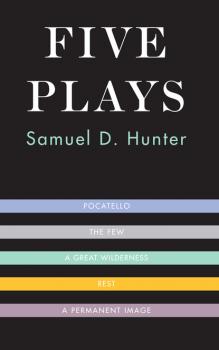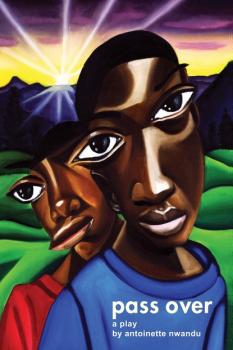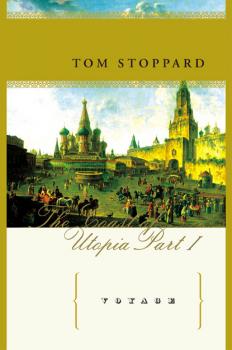Зарубежная драматургия
Различные книги в жанре Зарубежная драматургияFive Plays
Plays in this collection: Rest, A Great Wilderness, The Few, Pocatello.Rest premiered at South Coast Repertory Theatre (Costa Mesa, CA) in the spring 2014. A Great Wilderness premiered at Seattle Repertory Theatre in the winter 2014. The Few premiered at The Old Globe (San Diego, CA) in the fall 2013 with a subsequent Off-Broadway run at Rattlestick Playwrights Theatre. Pocatello premiered at Off-Broadway at Playwrights Horizons in the fall 2014. Pocatello and Rest are recipients of an Edgerton Foundation New American Plays awardPlaybill called 2014 “The Year of the Hunter” in reference to the numerous stagings of Hunter’s works.Hunter is the recipient of a MacArthur “Genius” Grant in 2014, which entails a grant of $625,000 to be paid over five years.One of the foremost modern American playwrights; especially relevant to Americans in suburban or rural regions of America as all of his plays are set in Idaho.One of the most widely commissioned playwrights of 2014 from theatres all over the country, like LCT3, Steppenwolf, Playwrights Horizons, MTC/Ars Nova, and many more.Winner of an Obie Award for A Bright New Boise and Drama Desk and Lucille Lortel Awards for The Whale
Pass Over
Pass Over combines two seminal yet disparate texts of Western literature—the Book of Exodus and Beckett’s Waiting for Godot —and transforms their themes of escape and the existential challenges of waiting in her depiction of two young Black men as they joke and dream about someday “passing over” into a new life while simultaneously trying to survive in a hostile and dangerous environment. The play was first produced at the Steppenwolf Theater in Chicago in the summer of 2017, with Danya Taymor directing, and moved to Claire Tow Theater at Lincoln Center in New York the following summer. At one of the Steppenwolf performances, award-winning film director, producer, and writer Spike Lee filmed it and posted the resulting film on Amazon Video. The film was screened at the Sundance Film Festival where it was praised by the Hollywood Reporter , among other publications. The Steppenwolf production sparked enormous controversy in the press—a “whitelash,” in Nwandu’s words—for the play’s so-called reverse racism in its portrayal of the white characters. In a response Nwandu penned for American Theatre , she points out that complacent privilege, represented by the genteel Mister, is just as pernicious and dangerous as the more outwardly hostile aggression of Ossifer, a menacing cop. She concluded, “I write plays that hold a mirror up to society, that expose the darkness as a means to finding light. This is necessary work. Healing work.” Nwandu is a star on the rise; among her most prestigious awards are the Whiting Award for Drama, the Paula Vogel Playwriting Award, the Lorraine Hansberry Playwriting Award, the Negro Ensemble Company’s Douglas Turner Ward Prize, and a Literary Fellowship at the Eugene O’Neill Playwrights Conference. Her work has been supported by the MacDowell Colony, the Sundance Theater Lab, the Cherry Lane Mentor Project, the Kennedy Center, and many others. In addition to her work as a playwright, Nwandu is working on a novel.
Complete Works, Volume IV
Dramatist, scriptwriter, short story writer, novelist, poet, director, and actor, Harold Pinter has earned universal praise for his distinctive style and imagination. In this, the most recent of four volumes, Pinter's work echoes many of his earlier themes and techniques-struggles for power and an ambience of menace-while finding fresh subject matter and means to express his changing dramatic vision. This volume contains three of Pinter's most famous plays, including Old Times, which Clive Barnes called «a joyous, wonderful play that people will talk about as long as we have theater»; a television play, Monologue; and a radio piece, Family Voices.Includes:Old TimesNo Man's LandBetrayalMonologueFamily Voices
Speed-the-Plow
Speed-the-Plow is an exhilaratingly sharp, comical, disturbing play about the power of money and sex in Hollywood, and how they corrupt two movie producers. Speed-the-Plow opened at Lincoln Center to sold-out seats, rave reviews and much fanfare in March 1988—staring Madonna, Joe Mantegna, and Ron Silver—and later moved to and had a long-standing run on Broadway.
Five Television Plays (David Mamet)
Five unique short plays for television by one of America’s most celebrated playwrights. A 'Waitress in Yellowstone' (or: 'Always Tell the Truth') is a parable about an honest waitress and a corrupt congressman. In Bradford, a new police chief arriving in a small New England town is plunged into the midst of its cozy secrets and uncovers the truth behind his predeces­sor's mysterious fatal hunting accident. The Museum of Science and Industry Story is a fantasy about the adventures of a man locked in a museum overnight. A Wasted Weekend is a 1987 episode of Hill Street Blues focusing on four cops and their ill-fated hunting trip. In We Will Take You There, Danny and Mike, partners in an unusual “taxi service to the wilds,” offer themselves as guides to the most remote areas of the world.Displaying Mamet’s characteristic ear for language and unsettling moral vision, these plays are among his darkest, funniest, and most entertaining.Includes:'A Waitress in Yellowstone' (or: 'Always Tell the Truth')'Bradford''The Museum of Science and Industry Story''A Wasted Weekend''We Will Take You There'
Sexual Perversity in Chicago and the Duck Variations
David Mamet is one of America’s most celebrated playwrights. The author of plays, screenplays, poetry, essays, and children’s books, he has won many awards, including the Pulitzer Prize for Glengarry Glen Ross.The Obie award-winning Sexual Perversity in Chicago is about two office workers, Danny and Bernie, on the make in the swinging singles scene of the early 1970s. Danny meets Deborah in a library and soon they are not only lovers but roommates, and their story quickly evolves into a modern romance in all its sticky details.The Duck Variations is a dialogue between two old men sitting on a park bench. The conversation turns to the mating habits of ducks, but soon begins to reveal their feelings about natural law, friendship, and death. New York magazine has called The Duck Variations “a gorgeously written, wonderfully observant piece whose timing and atmosphere are close to flawless.”
Betrayal
“One of the most essential artists produced by the twentieth century. Pinter’s work gets under our skin more than that of any living playwright.” —New York TimesUpon its premiere at the National Theatre, Betrayal was immediately recognized as a masterpiece. It won the Olivier Award for best new play, and has since been performed all around the world and made into an Academy Award-nominated film starring Jeremy Irons, Ben Kingsley, and Patricia Hodge. Betrayal begins with a meeting between adulterous lovers, Emma and Jerry, two years after their affair has ended. During the nine scenes of the play, we move back in time through the stages of their affair, ending in the house of Emma and her husband Robert, Jerry’s best friend.“[Betrayal] deals with the shifting balance of power in triangular relationships, and with the pain of loss. . . . Pinter probes the corrosive nature of betrayal . . . a world where pain and loss are explored with poetic precision.” —Guardian“Betrayal is an exquisite play, brilliantly simple in form and courageous in its search for a poetry that turns banality into a melancholy beauty.” —Newsweek“There is hardly a line into which desire, pain, alarm, sorrow, rage or some kind of blend of feelings has not been compressed, like volatile gas in a cylinder less stable than it looks . . . The play's subject is not sex, not even adultery, but the politics of betrayal and the damage it inflicts on all involved.” —Times (UK)
Voyage
Comprising of three sequential plays, The Coast of Utopia chronicles the story of romantics and revolutionaries caught up in a struggle for political freedom in an age of emperors.The Coast of Utopia is Tom Stoppard’s long-awaited and monumental trilogy that explores a group of friends who come of age under the Tsarist autocracy of Nicholas I, and for whom the term “intelligentsia” was coined. Among them are the anarchist Michael Bakunin, who was to challenge Marx for the soul of the masses; Ivan Turgenev, author of some of the most enduring works in Russian literature; the brilliant, erratic young critic Vissarion Belinsky; and Alexander Herzen, a nobleman's son and the first self-proclaimed socialist in Russia, who becomes the main focus of this drama of politics, love, loss and betrayal. In The Coast of Utopia, Stoppard presents an inspired examination of the struggle between romantic anarchy, utopian idealism and practical reformation in what The New York Times calls, “The biggest theatrical event of the year. . . . Brilliant, sprawling. . . . A rich pageant.”
Shipwreck
The Coast of Utopia is Tom Stoppard’s long-awaited and monumental trilogy that explores a group of friends who come of age under the Tsarist autocracy of Nicholas I, and for whom the term “intelligentsia” was coined. Among them are the anarchist Michael Bakunin, who was to challenge Marx for the soul of the masses; Ivan Turgenev, author of some of the most enduring works in Russian literature; the brilliant, erratic young critic Vissarion Belinsky; and Alexander Herzen, a nobleman's son and the first self-proclaimed socialist in Russia, who becomes the main focus of this drama of politics, love, loss and betrayal. In The Coast of Utopia, Stoppard presents an inspired examination of the struggle between romantic anarchy, utopian idealism and practical reformation in what The New York Times calls, “The biggest theatrical event of the year. . . . Brilliant, sprawling. . . . A rich pageant.”
Rosencrantz and Guildenstern Are Dead
Acclaimed as a modern dramatic masterpiece, Rosencrantz & Guildenstern are Dead is the fabulously inventive tale of Hamlet as told from the worm’s-eve view of the bewildered Rosencrantz and Guildenstern, two minor characters in Shakespeare’s play. In Tom Stoppard’s best-known work, this Shakespearean Laurel and Hardy finally get a chance to take the lead role, but do so in a world where echoes of Waiting for Godot resound, where reality and illusion intermix, and where fate leads our two heroes to a tragic but inevitable end.Tom Stoppard was catapulted into the front ranks of modem playwrights overnight when Rosencrantz and Guildenstern Are Dead opened in London in 1967. Its subsequent run in New York brought it the same enthusiastic acclaim, and the play has since been performed numerous times in the major theatrical centers of the world. It has won top honors for play and playwright in a poll of London Theater critics, and in its printed form it was chosen one of the “Notable Books of 1967” by the American Library Association.









